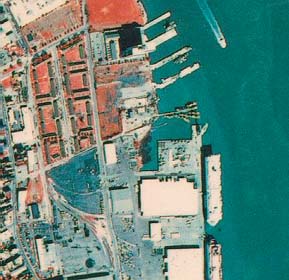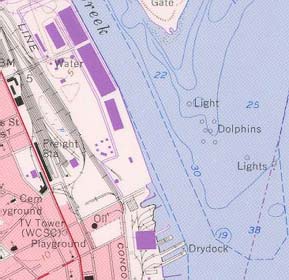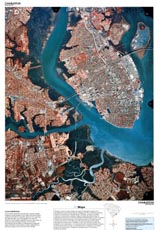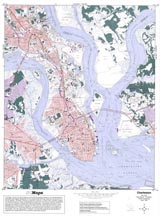 |
||||
Charleston |
|
Portion of NAPP infrared photograph of Charleston harbor and the Cooper River. |
Portion of topographic map of Charleston from the USGS Charleston quadrangle (1983). |
Charleston (NAPP) |
Charleston (Topo) |
RationaleThe Charleston Study Site highlights South Carolina's most historic port city. For the greater part of the state's history, politics, commerce, and cultural activity have all revolved around this well known metropolitan hub. Charleston has both prospered and suffered in her role as the Queen City, and later the Holy City. Seven great fires, seven great hurricanes, an earthquake, two occupying armies, and countless boom/bust economic cycles have affected the city since its founding in 1680. Charleston (Charles Towne until 1782) served as the first capital of South Carolina and has always been its primary seaport. It presents an excellent example of the tension that exists between progress, defined as development and industry, and the more picturesque qualities that attract tourists. The conflict is most visible between people who want to preserve the special atmosphere created by the historical areas and those who desire to profit from that historical quality by building restaurants, hotels and other special attractions. |
Background InformationDescription of Landforms
Influence of Topography on Historical Events and Cultural Trends
Natural Resources, Land Use, and Environmental Concerns
|




